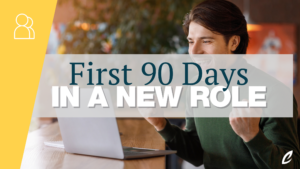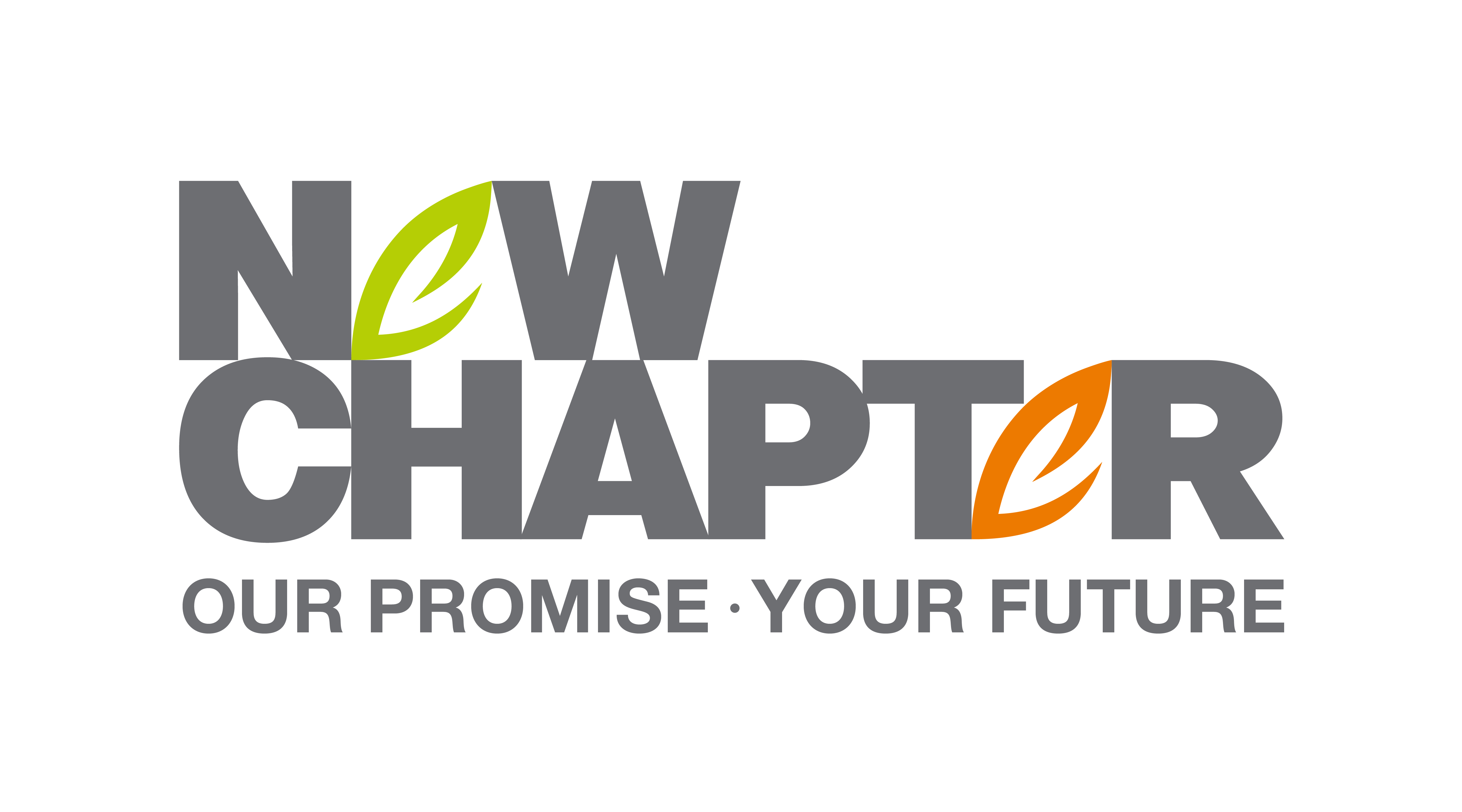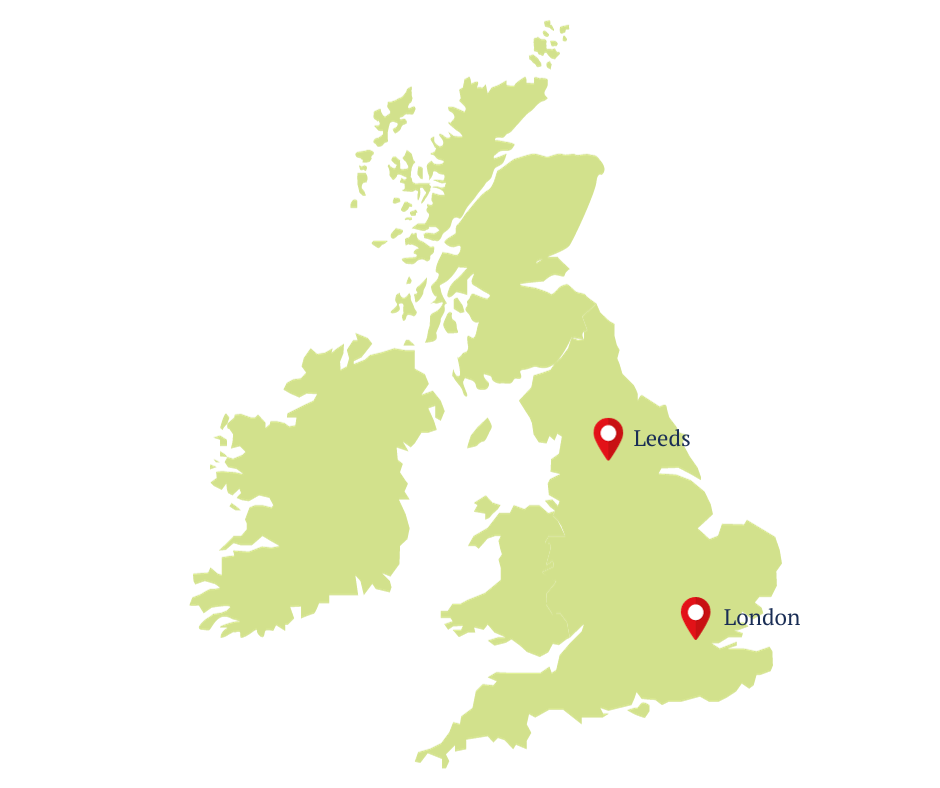Category: Top Tips
-

How To: Change Industry within FMCG
Continue ReadingHow To: Change Industry within FMCG
Are you planning to switch industries such as moving from the drinks industry to the beauty sector? Whatever your motivation, changing industries can be an exciting yet prove harder than you think. However, you can successfully navigate this transition and thrive in your new market.
We have put together our top tips to help you make a smooth transition:
Research
Before diving headfirst into a new industry, take the time to reflect on your skills, interests, and long-term career goals. Evaluate how your current skill set aligns with the requirements of the target industry. Research your ideal industry and the typical requirements in similar roles, whilst getting to know how the market operates and the key players.


Identify Transferable Skills
Whist you may lack direct experience in the new industry, chances are you possess many transferable skills. Analytical abilities, communication skills, project management, and adaptability, are sought after in any industry. Identify and highlight these in your CV and in interviews, be sure to focus on and demonstrate these traits.
Networking
Building a strong network is essential when transitioning into a new industry. Reach out to professionals working in your new sector through events, industry conferences, and LinkedIn. Aim to gain insights, expand your contacts, and find job opportunities.


Industry-Specific Knowledge
To stand out as a candidate in your desired industry, research industry-specific knowledge and certifications. Start courses, workshops, or online programs that offer insights into consumer behaviour, product development, and marketing strategies.
Tailor Your CV
Customise your CV and cover letter to highlight relevant experiences, accomplishments, and skills that are directly applicable to the industry. Use industry-specific keywords and terminology to demonstrate your understanding of the sector. Showcase any relevant projects, internships, or volunteer work that demonstrate your passion for moving to this industry and why you are looking for a transition like this.


Lower-Level Positions
Recognise that transitioning into a new sector may require starting from a more junior position to gain hands-on experience and familiarise yourself within the new industry. Be open to other roles that offer growth opportunities and a clear career path.
Demonstrate Passion
Employers are often drawn to candidates who exhibit genuine enthusiasm and passion for the industry. Communicate your interest during interviews and showcase your willingness to learn and adapt.


Stay Resilient
Career transitions take time, effort, and perseverance. Be prepared to face setbacks and challenges, but don’t lose sight of your long-term goals. Maintain a positive attitude and continue to actively pursue opportunities that align with your aspirations.
In conclusion, transitioning into a new industry within the FMCG market requires careful planning, determination, and a willingness to step outside your comfort zone. By leveraging your transferable skills, building a strong network, acquiring knowledge, and demonstrating passion, you can successfully navigate this career transition and start a new chapter in your professional life.
If you are currently looking to transition sectors or searching for a role, contact us today to schedule a confidential chat with one of our FMCG Recruiter, Drinks Recruiter, Beauty or Consumer Goods Recruiters, or take a look at the vacancies below.
Recent Blogs
Are you planning to switch industries within FMCG? Our guide will help you successfully navigate this transition.Sipping into Spring and Summer 2024
April 9, 2024Our guide to the top Spring and Summer drinks of 2024 from Beers to Gins, crack open a refreshing fruity drink this summer!Guide to Navigating Redundancy
April 9, 2024We understand that navigating redundancy can be a daunting experience. However, we believe that it also presents a unique opportunity. -

Guide to Navigating Redundancy
Continue ReadingGuide to Navigating Redundancy
We understand that navigating redundancy can be a daunting experience. However, we believe that it also presents a unique opportunity to reassess your career path and explore new avenues. As a recruitment company dedicated to helping candidates find their ideal roles, we see redundancy as a chance for personal and professional growth.
Here are some essential tips to help you navigate this challenging time:
Understand Your Rights
Familiarise yourself with your rights regarding redundancy pay, notice periods, and any other benefits you may be entitled to under employment law.


Seek Support
Don’t hesitate to reach out to HR or a trusted legal advisor with any queries about your redundancy pay or the redundancy process itself.
Update your CV and LinkedIn
Take the opportunity to refresh your CV and update your profile, highlighting your skills and achievements. Also, consider turning on ‘Open to Work’ feature to show recruiters and hiring managers that you’re actively searching. Be sure to tailor your experience and CV to align with the roles you’re interested in applying for.


Network
Utilise your network in person at industry events and on social media to connect with professionals in your field and gain insights into the job market.
Upskill and Reskill
Identify areas where you can improve certain skills or acquire new ones to increase competitiveness. Consider pursuing online courses and certifications to add relevant experience to your CV.


Stay Positive
Redundancy does not determine your worth as a professional. Remain resilient and focused on your goals as you navigate this phase of your professional career. Stay open to alternative career paths that may align with your skills and interests; experience in the FMCG sector may translate well into other sectors.
Consider Freelancing
Freelance or contract work can offer flexibility and opportunities while you search for your next permanent role in the FMCG industry.


Take Care of Yourself
Finally, prioritise self-care and your mental health during this potentially stressful time. Maintain a healthy work-life balance, stay connected with family and friends, and seek support if you’re feeling overwhelmed.
Navigating redundancy in the FMCG industry can be challenging, but by following these tips and staying proactive, you can position yourself for success in your new chapter. When approached with the right mindset and support, it can lead to significant professional growth and career fulfillment.
If you’re currently in this stage and would like advice from experts, contact us below.
If you are currently in the redundancy process or searching for a role, contact us today to schedule a confidential chat with one of our experienced consultants or take a look at vacancies below.
Recent Blogs
How To: Change Industry within FMCG
April 23, 2024Are you planning to switch industries within FMCG? Our guide will help you successfully navigate this transition.Sipping into Spring and Summer 2024
April 9, 2024Our guide to the top Spring and Summer drinks of 2024 from Beers to Gins, crack open a refreshing fruity drink this summer!Guide to Navigating Redundancy
April 9, 2024We understand that navigating redundancy can be a daunting experience. However, we believe that it also presents a unique opportunity. -

Guide to Reducing Stress in the Workplace
Continue ReadingGuide to Reducing Stress in the Workplace
During Stress Awareness Month this April, we have compiled a guide for employers on reducing stress in the workplace to unlock the full potential of their employees. This guide can also be beneficial for job seekers, helping them to identify potential benefits to seek in their next role.
Here are some examples of strategies and benefits that companies can implement to work towards a stress-free workplace:
Hybrid Work Arrangements
Many companies are providing hybrid working options, which enhance employees’ work-life balance and consequently reduce stress in various aspects of their lives. This change also helps to alleviate commuting stress, allowing employees to utilise this to balance their personal and work lives.
Four-day Workweek
Some companies have implemented this 4-day workweek, where employees either retain their original working structure with an extra day off or compensate for this day by working longer hours. This approach can result in increased productivity during the hours at work, reduce burnout, and improve overall well-being. Many companies in 2024 are trailing this work model, and data is still being collected on its impacts.

Wellness Programs
Companies are investing in wellness programs that promote physical and mental well-being. These may include gym memberships, mindfulness sessions, yoga classes, and free access to counselling.
Flexible Working Pattern
This arrangement, much like hybrid working, allows for better work-life balance. Flexible work can take many different forms, but some companies are trialling ‘core hours’, where employees must work, for example, 10am to 4pm and then can choose to start earlier or work later. This way, those who need to accommodate the school run or look after elderly relatives have a flexible schedule to manage these responsibilities.
Open Feedback
Encouraging open communication and providing regular feedback is essential for managing employee stress levels. It helps foster a supportive work culture and allows employees to feel valued in the workplace. This also keeps senior managers aware of any ongoing issues, enabling them to address these before they escalate.

Workload Management
This goes hand in hand with open feedback, as with open communication, managers may discover that members of their team are struggling with their workload. This can involve prioritising tasks, delegating responsibilities, and promoting teamwork to assist in reducing stress.
If you are facing challenges at work or experiencing stress in your role, contact us today to schedule a confidential chat with one of our experienced consultants.
We can help you find your dream role, take a look at vacancies below.
Alternatively, if you just need some specialist advice from our experienced FMCG recruiters, we would love to help you out.
Recent Blogs
How To: Change Industry within FMCG
April 23, 2024Are you planning to switch industries within FMCG? Our guide will help you successfully navigate this transition.Sipping into Spring and Summer 2024
April 9, 2024Our guide to the top Spring and Summer drinks of 2024 from Beers to Gins, crack open a refreshing fruity drink this summer!Guide to Navigating Redundancy
April 9, 2024We understand that navigating redundancy can be a daunting experience. However, we believe that it also presents a unique opportunity. -

Ultimate Guide to Handing in Your Notice
Continue ReadingUltimate Guide to Handing in Your Notice
Transitioning from one job to another and handing in your notice is a huge step in your career journey. Whether you are leaving your current position due to a better opportunity, personal reasons, or career growth, how you give your notice can leave a lasting impression on your colleagues and employers.
Relationships and reputation matter so it’s essential to handle your resignation with professionalism. Here are some tips on how to hand in your notice:
1. Plan Ahead
Before resigning, ensure that you have a solid plan in place. Consider factors such as your last working day, handover responsibilities, and any pending projects. Having a clear timeline will ensure the transition is smooth and will demonstrate your commitment to finishing your work.
2. Schedule a Meeting
Request a private meeting with your immediate manager to discuss your resignation. Choose a time when they’re not too busy and can give you their full attention. This shows respect for their time but also allows for a more in-depth conversation.

3. Be Honest but Professional
During the meeting, be honest about your reasons for leaving without going into unnecessary detail or speaking negatively about the company or your colleagues. Focus on positive aspects of your experience and express gratitude for the opportunities and support you’ve received.
4. Offer to Assist in Transition
Assure your employer that you are committed to a smooth transition. Offer to help train your replacement and provide any necessary handover materials. This proactive approach demonstrates your professionalism and leaves a positive impression.
5. Provide a Written Resignation Letter
Follow up your meeting with a formal resignation letter. Keep it concise, professional, and positive. Include your last working day, gratitude for the opportunity, and willingness to assist during the transition period. This letter serves as a formal record of your resignation and can be added to your file.

6. Maintain a Positive Attitude
After giving your notice, continue to perform your role and maintain a positive attitude until your last day. Avoid slacking off or burning bridges as your professional reputation is important, especially in a close-knit industry like FMCG.
7. Prepare for the Exit Interview
If your company conducts exit interviews, prepare thoughtful and constructive feedback. Focus on constructive criticism and avoid personal attacks or negativity. Your insights can help the company improve its processes and culture for future employees.
8. Stay Connected
Keep in touch with colleagues and managers even after you leave. Networking is valuable in the FMCG industry, and maintaining positive relationships can lead to future opportunities.

9. Celebrate Achievements
Take time to celebrate your achievements and contributions whilst working for the company. This could be through a lunch or drinks evening where you can say goodbye to colleagues and finish on a positive note.
10. Prepare for the Next Step
Finally, focus on preparing for your new role or career transition. Update your CV and LinkedIn profile, network with industry contacts, and set goals for the future.
Giving your notice will always require professionalism, and a positive attitude. By following these tips, you can navigate this smoothly whilst leaving a lasting positive impression on your colleagues and employer. Remember, how you exit is just as important as how you enter a job.
At New Chapter, we specialise in the FMCG recruitment, working across the Food, Retail, Drinks, Luxury and Consumer industries. If you’re currently seeking a new opportunity, make sure to contact us on info@newchapter.co.uk or take a look at our current vacancies.
Alternatively, if you just need some specialist advice from our experienced FMCG recruiters, we would love to help you out.
Recent Blogs
How To: Change Industry within FMCG
April 23, 2024Are you planning to switch industries within FMCG? Our guide will help you successfully navigate this transition.Sipping into Spring and Summer 2024
April 9, 2024Our guide to the top Spring and Summer drinks of 2024 from Beers to Gins, crack open a refreshing fruity drink this summer!Guide to Navigating Redundancy
April 9, 2024We understand that navigating redundancy can be a daunting experience. However, we believe that it also presents a unique opportunity. -

Winter Blues Impact on your Job Search
Continue ReadingWinter Blues Impact on your Job Search
Even though we will soon be leaving behind the gloomy winter season, the arrival of spring and warmer temperatures still seems distant. The shorter days, colder weather, and lack of sunlight can take a toll on our mood and motivation causing the winter blues. This affects various aspects of our lives, especially when trying to keep a positive attitude in your job searches.
If you’ve still not found your dream role or you’re struggling with motivation, this blog is for you. Let’s beat those winter blues!
Winter Blues
The winter blues occur at a specific time of year, typically in the winter months. Symptoms may include fatigue, low energy, difficulty concentrating, and a general feeling of sadness or hopelessness.
Impact on Career and Job Search
Decreased Motivation
The winter blues sap motivation and enthusiasm, making it difficult to stay focused on your job search. Repeatedly applying for positions without securing many interviews can already be demoralising. When coupled with the lack of motivation from the winter blues, it can become overwhelming, leading to procrastination in submitting applications.


Slowed Networking
Networking remains a crucial aspect of any job search; however, during the winter months, the desire to socialise and network may wane due to the cold weather and dark evenings.
Lacking Energy
The winter blues often come with feelings of fatigue and low energy levels. This can impact our ability to tackle job search tasks such as updating CVs, writing cover letters, or preparing for interviews. Consequently, this can have a knock-on effect on your success in securing interviews. If you’re not putting as much effort in to showing the interviewer you’re the ideal candidate, they’re less likely to select you for the next stage.


Mental Health Impact
The mental health challenges linked to the winter blues can cause stress and anxiety with career transitions. The pressure to find and secure a new job may feel overwhelming, leading to feelings self-doubt.
Coping Strategies
Outside
Make it a priority to spend as much time outdoors as possible, taking walks to maximise exposure to daylight even during weeks when the sun hasn’t appeared.


Prioritise Self-Care
Caring for your mental and physical well-being is crucial, especially during the winter months. Integrate self-care activities like exercise, healthy eating, and relaxation techniques into your daily routine to boost mood and energy levels. Ensure you get all the necessary vitamins through a balanced diet or vitamin supplements.
Reward Yourself
We’re not suggesting that every time you apply for a role, you should book yourself a week-long trip to Greece. However, to maintain motivation, make sure you celebrate those small wins, such as successfully securing an interview. This could mean treating yourself to coffee with a friend, buying yourself a nice lunch, or a dedicated self-care evening.


Set Realistic Goals
Break down larger job search goals into smaller, more manageable tasks. Setting realistic goals enables you to make progress without feeling overwhelmed by the task at hand. For instance, begin by updating your LinkedIn Profile. Next, work on updating the experience section of your CV. After that compile a list of companies of interest, and so on, to break down the dauting search.
Stay Social and Connected
Despite the temptation to hibernate during the winter months, it’s crucial to stay connected to friends, family, and professional contacts. Reach out to mentors, peers, or networking groups for support and encouragement. While you may feel inclined to decline invitations and stay home, spending time with friends can help lift those blues, even if it’s just for a few hours.


Seek Professional Help
If feelings of depression or anxiety persist, consider seeking support from a mental health professional. Therapy or counselling can provide valuable coping strategies and support during challenging times
The winter blues can certainly present challenges for those navigating their job search. However, by understanding how seasonal changes impact our mood and behaviour, and by implementing effective coping strategies, we can alleviate the negative effects and stay on track toward our professional goals.
Remember, you’re not alone in facing these challenges, and with the right support and self-care practices, you can successfully navigate the winter blues and thrive in your career journey.
If you need help finding your next opportunity or just need support in your search, contact us today on info@newchapter.co.uk.
Alternatively, if you just need some specialist advice from experienced FMCG, Consumer and Retail recruiters, we would love to help you out.
Recent Blogs
How To: Change Industry within FMCG
April 23, 2024Are you planning to switch industries within FMCG? Our guide will help you successfully navigate this transition.Sipping into Spring and Summer 2024
April 9, 2024Our guide to the top Spring and Summer drinks of 2024 from Beers to Gins, crack open a refreshing fruity drink this summer!Guide to Navigating Redundancy
April 9, 2024We understand that navigating redundancy can be a daunting experience. However, we believe that it also presents a unique opportunity. -

Mastering the First 90 Days in a...
Continue ReadingMastering the First 90 Days in a New Role
Starting a new FMCG job is both exciting and daunting. The first few months in a new position are critical for setting the tone and laying the foundation for your success.
In this blog, we will outline a strategic roadmap to help you in mastering the first 90 days in a new role in FMCG with confidence.
Set Clear Goals and Objectives
Begin by defining what success looks like you over the next 90 days. This will hugely vary for each professional based on your previous experience and new role. Consider what you aim to achieve-whether it’s mastering a new skill or software, creating strong connections with clients and colleagues, or ensuring you have a full understanding of the product/service.
To establish your goals, use the SMART (Specific, Measurable, Achievable, Relevant, Time-bound) technique. Refer to our previous blog on how to identify your strengths and weaknesses for help with this. Ensure that your goals align with your role, responsibilities, and the overall objective of the business. Break them down into actionable steps and prioritise based on importance.
Understand Your Role and Responsibilities
Ensuring a thorough understanding of your role, responsibilities, and expectations not only portrays you as proactive but also lays the groundwork for long-term success.
Clarify any uncertainties with your manager and colleagues whilst familiarising yourself with key processes, new systems, and all clients and stakeholders. Identify potential challenges or areas for improvement in the business and develop proactive strategies to address them.
Build Strong Relationships
Starting a new role and meeting new people can be daunting. However, ensuring you connect with your colleagues and clients in the first 90 days is essential; it lays the groundwork for making positive first impressions.
Invest time in building rapport, trust, and collaboration, and actively seek feedback and insights from others. This will help you to gain a deeper understanding of the dynamics within your team; relationship-building is essential for success in any role.

Organisation and Effective Time Management
Developing a structured plan to efficiently manage your time and tasks is crucial. Prioritise your daily activities according to their importance and urgency. Use tools and techniques such as to-do lists, calendars, and project management software to stay organised and focused. Set aside dedicated time for strategic planning, goal setting, and reflection.
Continuous Learning and Development
Commit to continuous learning and professional development. Identify areas where you can expand your knowledge, skills, and expertise to thrive in your new role. Take advantage of training programs, workshops, and resources offered and look for new opportunities to learn to accelerate your development.

Seek Feedback and Reflect Regularly
Seek feedback from your manager, colleagues, and stakeholders on your performance and progress. Actively listen to their input and incorporate constructive feedback into your development efforts. Take time to reflect on your achievements and areas for improvement. Celebrate your successes and learn from your setbacks to continuously refine your approach.
The next 90 days are important to establish yourself in your new FMCG role and set yourself up for long-term success. Remember that your career success is a journey, and each day will give you an opportunity to learn, grow, and excel. Here’s to mastering the first 90 days and beyond!
At New Chapter, we specialise in the FMCG recruitment, working across the Food, Retail, Drinks, Luxury and Consumer industries. If you’re currently seeking a new opportunity, make sure to contact us on info@newchapter.co.uk or take a look at our current vacancies.
Alternatively, if you just need some specialist advice from our experienced FMCG recruiters, we would love to help you out.
Recent Blogs
How To: Change Industry within FMCG
April 23, 2024Are you planning to switch industries within FMCG? Our guide will help you successfully navigate this transition.Sipping into Spring and Summer 2024
April 9, 2024Our guide to the top Spring and Summer drinks of 2024 from Beers to Gins, crack open a refreshing fruity drink this summer!Guide to Navigating Redundancy
April 9, 2024We understand that navigating redundancy can be a daunting experience. However, we believe that it also presents a unique opportunity. -

Love in London: Valentine’s Day Date Ideas
Continue ReadingLove in London: Valentine's Day Date Ideas
As Valentine’s Day nears, London boasts a variety of fantastic Galantine’s or date night experiences. Whether you prefer cozy evenings, adventurous outings, or cultural experiences, the city caters to everyone. This guide explores the top activities for Valentine’s Day in London.
1. Picnic at Hyde Park:
For those who enjoy the outdoors, Hyde Park provides the perfect setting for a romantic picnic. Pack a basket with your favourite snacks, bring a blanket, and don’t forget a thermos of hot chocolate (it is still February, after all!)

2. Candlelit Dinner at The Shard:
Elevate your Valentine’s Day with a candlelit dinner at one of London’s most iconic landmarks, The Shard. Enjoy a delicious meal with stunning views of the city lights – guaranteed to make your night extra special!
3. City Cruises:
Sail down the Thames in style on your romantic evening. Book a dinner or afternoon tea cruise and enjoy a scenic tour of London’s landmarks, accompanied by live music and wonderful food.
4. West End Musicals:
London is currently hosting incredible West End shows like Moulin Rouge, SIX, Hamilton, and many more. Paired with a dinner at a restaurant, this creates the perfect romantic evening or Galantine’s night out.
6. Private Cinema Experience at Electric Cinema:
Enjoy an intimate evening with a private cinema experience at Electric Cinema in Notting Hill. Snuggle up in plush seats and watch a movie of your choice, creating a romantic atmosphere for the perfect evening out.
7. Sky Garden Sunset View:
Capture the sunset from the Sky Garden, providing a breathtaking panoramic view of London. Surrounded by lush greenery and floor-to-ceiling windows, this garden offers a romantic setting for a pre-dinner drink or a moonlit stroll.
8. Cultural Date at Tate Modern:
Art enthusiasts can immerse themselves in contemporary art at Tate Modern. Wander through the galleries and find inspiration from the collections for free.
9. Ice Skating at Somerset House:
Embrace the winter breeze with a classic ice-skating date at Somerset House. You will be surrounded by the beautiful architecture of this historic venue, picture yourselves gliding round hand in hand-or, more realistically, ending up on the floor!
Whether you prefer a quiet evening at a park, plan to explore landmarks, or experience the cultural in theatres and markets. London offers a diverse range of date ideas for every couple or galantines girl group.
If you are looking for a job within the FMCG industry!
Check out our website to search our live job vacancies now!
Or
Get in touch for a chat so we can learn about you and what you want out of your career.
0845 200 741
info@newchapter.co.uk
Recent Blogs
How To: Change Industry within FMCG
April 23, 2024Are you planning to switch industries within FMCG? Our guide will help you successfully navigate this transition.Sipping into Spring and Summer 2024
April 9, 2024Our guide to the top Spring and Summer drinks of 2024 from Beers to Gins, crack open a refreshing fruity drink this summer!Guide to Navigating Redundancy
April 9, 2024We understand that navigating redundancy can be a daunting experience. However, we believe that it also presents a unique opportunity. -

FMCG Talent: Beyond Job Boards
Continue ReadingPartner with New Chapter for your FMCG Talent Needs
As the FMCG industry continues to evolve and expand, the need for exceptional talent becomes more critical than ever. At New Chapter, we understand that finding the right candidates to drive your FMCG business forward can be challenging.
While job boards have been a traditional go-to for recruitment, we believe in going beyond the ordinary to discover extraordinary talent. This blog explores our innovative and creative approaches to FMCG talent sourcing. These ideas can give your company a competitive edge and help you build and retain a top-performing team.
Leveraging Social Media
Our expert team at New Chapter knows how to harness the potential of platforms like LinkedIn, Facebook, and Instagram to build your employer brand, engage with potential candidates, and create a robust talent pool. By showcasing your company culture, values, and success stories, we attract top talent who align with your vision and mission.
Option 1: We offer the option to maintain your brand confidentiality online while connecting you with candidates who perfectly fit your role. Rest assured, your company’s identity remains discreet during the hiring process, ensuring a seamless and confidential search for the ideal candidates.
Option 2: Alternatively, we provide an exclusive partnership where we showcase your company culture, values, and success stories. By leveraging this approach, we can attract top talent who deeply align with your vision and mission. Thus, resulting in a team that shares your passion and dedication.

Tapping into FMCG Industry Events
FMCG industry events, conferences, and trade shows are gold mines for talent acquisition. Our team actively participates in these events. This is not only to stay up-to-date with the latest industry trends but also to network and connect with potential candidates. These platforms offer unique opportunities to identify hidden gems and passionate individuals who can elevate your FMCG business to new heights.
Reducing Your Hiring Time
Job boards can often bring in a large number of applications which can often be time-consuming for employers to screen and evaluate. New Chapter streamlines the recruitment process, presenting you with pre-screened and qualified candidates, saving you valuable time and effort.
Access Passive FMCG Candidates
While FMCG job boards attract active job seekers, New Chapter’s network and expertise allow us to reach out to passive candidates who may not be actively looking for new opportunities but could be a perfect match for your company.
New Chapter's Unique Approach
At New Chapter, we’ve developed a unique and exclusive approach that lies at the heart of our success. If you know us, you will know our secret recipe. This specialised strategy, known as our five2 Approach, is the secret to our achievements in the FMCG industry. Get in touch to find out more.
If you’re looking to revolutionise your FMCG talent acquisition process and find the best talent in the industry, partner with New Chapter today.
Contact us now to find out more about what we do.
At New Chapter, we understand the importance of staying informed and competitive in the fast-paced FMCG industry. That’s why we’re excited to offer you our exclusive FMCG and Drinks Salary Survey’s, designed to provide you with valuable insights and help you get ahead of the curve when benchmarking salaries for 2024.
Recent Blogs
How To: Change Industry within FMCG
April 23, 2024Are you planning to switch industries within FMCG? Our guide will help you successfully navigate this transition.Sipping into Spring and Summer 2024
April 9, 2024Our guide to the top Spring and Summer drinks of 2024 from Beers to Gins, crack open a refreshing fruity drink this summer!Guide to Navigating Redundancy
April 9, 2024We understand that navigating redundancy can be a daunting experience. However, we believe that it also presents a unique opportunity. -

Top Five End of Interview Questions
Continue ReadingTop Five End of Interview Questions
The end of an interview is a crucial moment for you to demonstrate your genuine interest in the role and gain insights into the business culture and team dynamic. Interviews are a two-way street. While employers evaluate candidates for their suitability for the position, it’s equally important for you to assess the company culture, work environment, and job expectations.
Here are the top five questions to ask at the end of an interview to leave a lasting impression whilst interviewing the business to work out if the role is suitable for you:
"What does a typical career path look like for someone in this position?"
This will help you to understand the growth opportunities available to you and you can compare this to your current role. It also demonstrates your commitment to long-term success within the company and signals to the hiring manager that you’re ambitious and curious to know more. The answer to this question can reveal whether a company invests time into employee development and encourages growth, with opportunities for advancement or ways to improve your skills.
"How does the company support professional development?"
By asking about the company’s approach to the professional development they mentioned in the first question, you demonstrate your eagerness to grow and you can find out what will be available to help you progress should you take this position. A commitment to wanting to learn and improve is a valuable trait in any employee. Their answer will provide you insights into whether they offer training programs, mentorship opportunities, and how you can improve your skills.

"What challenges or opportunities is the team currently facing?"
This forward-thinking mindset is great when asking about the challenges or opportunities within the team or department. You can use this answer to explain how you feel you could add value to the company based on these struggles. Understanding their current priorities or problems can also help you to assess if your skills align with the company’s needs and if you have the experience to address these challenges.
"Can you tell me more about the team dynamics and the company culture?"
Understanding the dynamics of the team and the overall company culture is crucial for you. This question not only shows your interest in fitting into the existing work environment but also gives you a view into the company’s values, communication, and collaboration style. It is vital for the work culture to align with your own values for increased productivity and happiness in a role.
"What is the next step in the interview process, and when can I expect to hear back?"
This question allows you to demonstrate your interest in moving forward without appearing pushy, and it provides a clear timeline for the business to follow-up. It is important to close the interview by expressing your enthusiasm as it will helps manage your expectations regarding feedback.

Asking thoughtful questions at the end of an interview is a strategic way to showcase your interest, find out more information, and leave a positive lasting impression on the interviewer.
Remember, interviews are not only about the employer evaluating you but also about you evaluating the employer. Use these questions to ensure that the job aligns with your career goals and values.
At New Chapter, we partner with companies in the FMCG & Retail industries. If you’re currently seeking a new opportunity, make sure to contact us on info@newchapter.co.uk or take a look at our current vacancies.
Alternatively, if you just need some specialist advice from experienced recruiters in your industry, we would love to help you out.
Recent Blogs
How To: Change Industry within FMCG
April 23, 2024Are you planning to switch industries within FMCG? Our guide will help you successfully navigate this transition.Sipping into Spring and Summer 2024
April 9, 2024Our guide to the top Spring and Summer drinks of 2024 from Beers to Gins, crack open a refreshing fruity drink this summer!Guide to Navigating Redundancy
April 9, 2024We understand that navigating redundancy can be a daunting experience. However, we believe that it also presents a unique opportunity. -

Navigating Career Resolutions 2024
Continue ReadingNavigating Career Resolutions 2024
Christmas is just a few days away, but let’s shift our focus to the fast-approaching New Year. Many people set New Year’s Resolutions each year. We have previously discussed how forgoing resolutions can be beneficial, as they may lead to demotivation when they aren’t achieved. However, if you prefer to have goals in place, establishing healthy practices, particularly for your career, can pave the way for a successful 2024.
Before setting your goals, consider these key points to ensure you feel ready for a new challenge.
Reflecting on Career Satisfaction
The beginning of a new year offers an opportunity to assess your career satisfaction. Reflect on your current role—does it align with your aspirations and values? Consider the aspects of your job that bring you enjoy, and conversely, identify areas that leave you wanting more. This reflection serves as the foundation for establishing your goals in 2024.
Defining Your Career Path
Establishing specific and achievable career goals is crucial to successfully navigate the job market. Whether you’re aiming for a leadership position, exploring a new industry, or enhancing your skills, having clear objectives will steer you in the right direction. Breaking down your goals into smaller steps will make them feel more achievable.

Crafting an Impactful Personal Brand
Your online presence often forms the first impression for potential employers. Take time to polish your personal brand including updating your LinkedIn profile with recent accomplishments and ensuring you have a current CV ready. Refer to our previous blog, ‘a guide to LinkedIn,’ for help with your personal brand.
Strategic Networking
Networking is a powerful tool for career growth. Aim to attend industry events, join professional groups, and engage with mentors. Building genuine connections can lead to valuable insights, job referrals, and mentorship opportunities. Never underestimate the power of a well-cultivated professional network.
Lifelong Learning
Continuous learning is key to staying relevant in today’s rapidly evolving job market. Identify skills that are in demand in your industry and invest in your professional development. Online courses, workshops, and certifications can not only broaden your skill set but also make you a more attractive candidate to prospective employers.

Tailor Your Job Search
Approach your job search strategically. Customise your application materials for each position, emphasising how your skills and experiences align with the specific requirements of the job. Leverage job boards, company websites, and professional networks to identify potential opportunities.
Leveraging Recruitment Agencies
Recruiters are valuable allies in your job search. We have extensive networks and insights into the current job market. Partnering with a reputable consultancy can provide you with access to exclusive job opportunities and streamline the application process. If you’re ready to kickstart your search in 2024, feel free to get in touch with us below.
We have selected a list of the best new year career resolutions;
You could decide to ensure you stretch every hour, get a standing desk, bring your own healthy lunch etc.
Take on learning a new language, new technology, public speaking and more!
Take a LinkedIn branding course, update your profile photo, create an updated CV.
Organise not only your physical files, but all of your online files too.
Take on a free course, or aim to achieve an entirely new certification to add to your CV.
Aim to keep your email inbox organised, try the inbox zero method.
Start networking by attending events, contacting peers and use LinkedIn to connect.
Set your goals based on what you need to do to achieve this.
Keep yourself organised and sort your day to day priorities.
Explore a new path in 2024, contact us today!
Take charge of your professional narrative, set meaningful goals, and navigate the job market with intention. If you need help or have questions, don’t hesitate to contact us.
At New Chapter, we partner with companies in the FMCG & Retail industries. If you’re currently seeking a new opportunity, make sure to contact us on info@newchapter.co.uk or take a look at our current vacancies.
Alternatively, if you just need some specialist advice from experienced recruiters in your industry, we would love to help you out.
Recent Blogs
How To: Change Industry within FMCG
April 23, 2024Are you planning to switch industries within FMCG? Our guide will help you successfully navigate this transition.Sipping into Spring and Summer 2024
April 9, 2024Our guide to the top Spring and Summer drinks of 2024 from Beers to Gins, crack open a refreshing fruity drink this summer!Guide to Navigating Redundancy
April 9, 2024We understand that navigating redundancy can be a daunting experience. However, we believe that it also presents a unique opportunity.














